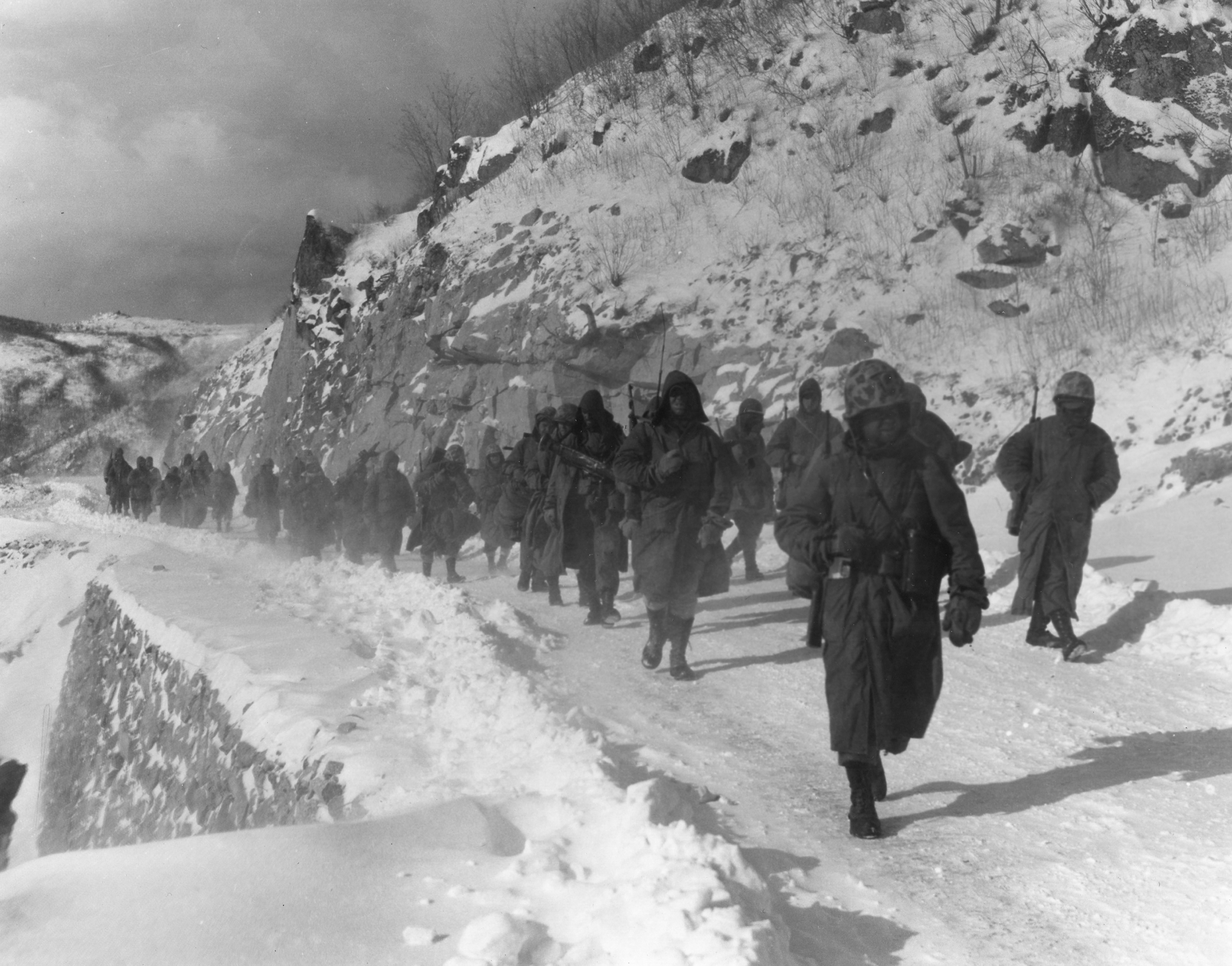It’s been called the battle that defined the modern Marine Corps. Retired Captain Harold Barber calls it the battle that saved the Marine Corps. Yet the Battle of Chosin Reservoir, and the Korean War as a whole, is largely America’s “forgotten war.”
Speaking with HistoryNet, Barber, one of the “Chosin Few,” acknowledges that Korea is the “quiet one.”
“The people that were in the Chosin really never talked about it like World War II, or World War I, or Vietnam,” he says.
Yesterday in California, at the Twentynine Palms Cemetery, Barber hoped to rectify that in his own way –– 70 years after the battle’s end. Accompanied by the 7th Marine Regiment Color Guard and its chaplain, Barber laid markers on the gravestones of Chosin Reservoir veterans William John Flynn Jr. and William Richard Klink to honor their service.
“I went to the cemetery and I looked and there is no marker on there saying that they served up in the Chosin Reservoir,” Barber told HistoryNet. “So I contacted the headquarters for the Korean War Marines and I got markers to put on their gravestones to show that they served up” there.
Despite knowing both Marines after the war, it wasn’t until years later that Barber discovered that all three had served at Chosin. Barber and Klink worked closely together for eight years, but talked “about everything except the Marine Corps.”
Klink, a Marine engineer, was shot through the shoulder during the bitter fighting at Chosin and was medically discharged in 1951. A fact, Barber says, he only learned from Klink’s son.
Set in the mountains of North Korea, the Battle of Chosin was “never intended for military operations,” Oliver P. Smith, the commanding general of 1st Marine Division, later acknowledged. The incredibly treacherous and snow slicked terrain, along a single winding road, made it a perfect ambush spot for the Chinese forces.
As the 1st Marine Division, the largest American unit engaged at Chosin, beat back wave after wave of Chinese, Smith famously quipped, “Retreat, hell! We’re not retreating, we’re just advancing in a different direction.”
Pitting 30,000 U.S., Republic of Korea, and British troops against 120,000 Chinese soldiers, the U.N. forces were outnumbered and at risk of annihilation. Over the next 18 days the men fought a vicious battle, desperately “advancing in a different direction” to escape the Chinese trap and reach Hungnam, a North Korean port some 70 miles away.
Barber, at the time a PFC in the 3rd Battalion 5th Marines, recalls the misery of having to wear the same thin uniform meant for the summer heat of Pusan, South Korea. In the mountains of North Korea, however, that uniform meant that if you stopped, you froze.
By the end of the campaign on December 13th, nearly 6,000 Americans were dead or missing, with thousands more wounded.
For Barber, a veteran of both Korea and Vietnam, it is the memory of Chosin that remains. And though it was the “quiet war,” he is determined that Flynn and Klink’s sacrifice are seen.

